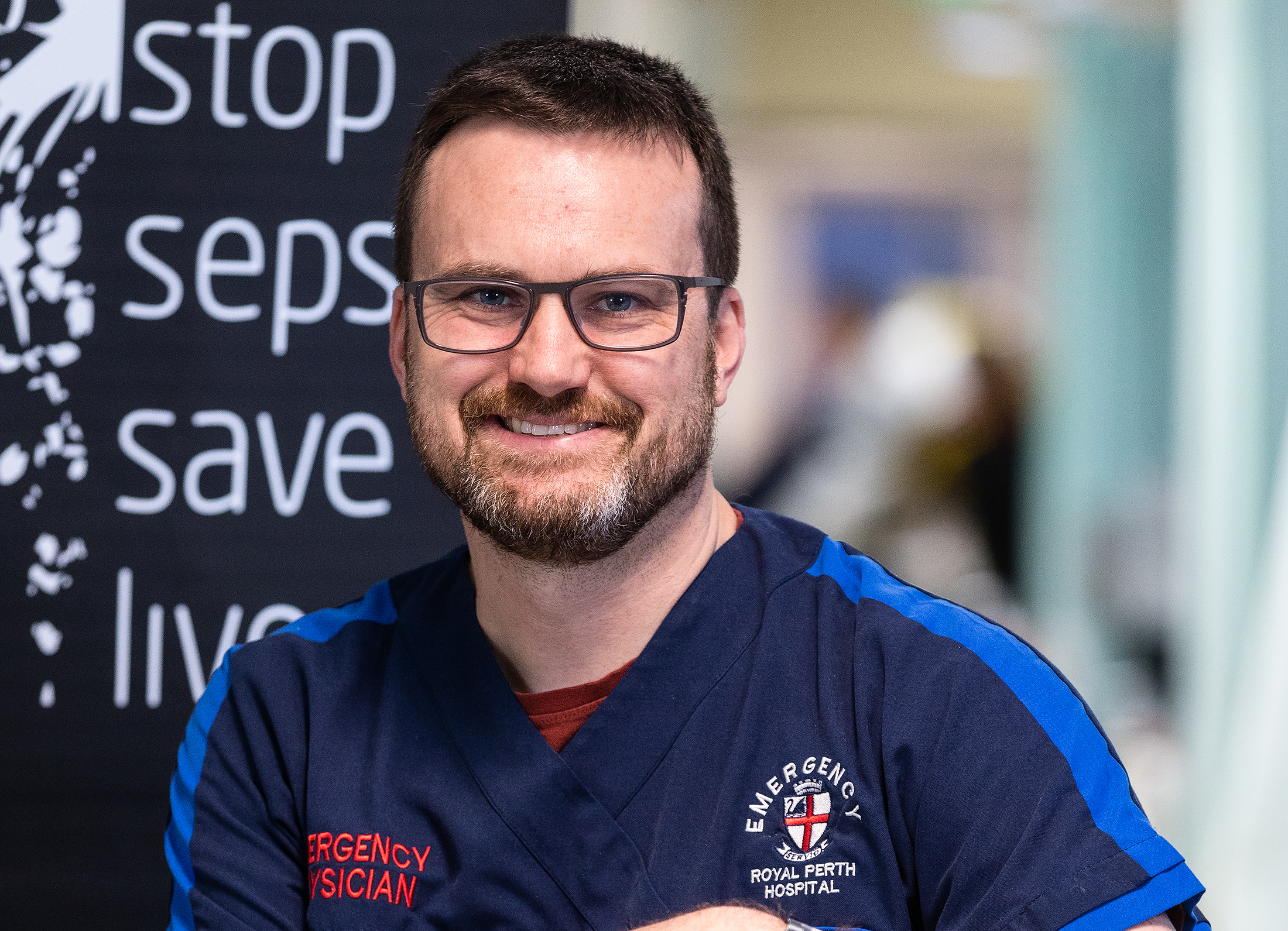EMHS on forefront in sepsis care
Sepsis is a serious medical condition that claims the lives of almost 9000 Australians every year. It occurs when the body has an extreme immune response to an infection, leading to tissue damage and organ failure.
People who survive sepsis are often left with profound long-term health problems. Though early detection and treatment is the key to improving sepsis outcomes, it is an illness that remains difficult to diagnose.
A strong focus on sepsis research over the past decade has put EMHS at the forefront of improving the detection and care of sepsis patients in WA.

That tradition is set to continue following RPH specialist emergency doctor Stephen MacDonald, being awarded one of four State Government-funded Fellowships in June 2022. This will enable him to continue to pursue important sepsis research, including:
- A long-term study analysing blood samples collected from ED patients suspected of sepsis. The study is designed to gain a better understanding of the mechanisms of illness with a view to finding new diagnostic tests and treatment targets.
- Establishment of a sepsis clinical registry that will enable Dr MacDonald and his colleagues to monitor the effectiveness of new sepsis resources that are being rolled out across EMHS hospitals.
These resources have been designed to help healthcare staff detect potential sepsis cases early, enabling prompt treatment.
By monitoring routine clinical data collected for the registry, Dr MacDonald will be able to see whether these resources have been effective in supporting best-practice guidelines.
The registry will also enable monitoring of patient outcomes. - An initiative involving EMHS’ HIVE program, in which sepsis patients are closely monitored remotely by specialist doctors and nurses based in the HIVE command centre.
Dr MacDonald said that as well as being difficult to diagnose, sepsis is a condition for which treatment can be fragmented because sepsis patients often have complex multisystemic problems that require the involvement of numerous different specialists.
“While about a quarter of sepsis patients get admitted to the ICU, the rest will be dispersed across other areas of the hospital,” he explained.
“This makes it harder to coordinate care for these patients.
“The measures we are implementing will give us better oversight of these patients so we can ensure that all the things that need to be done are carried out in a standardised way.”
Dr MacDonald believes embedding research, innovation and evaluation within routine clinical activities is the key to improving the efficiency and effectiveness of care.

